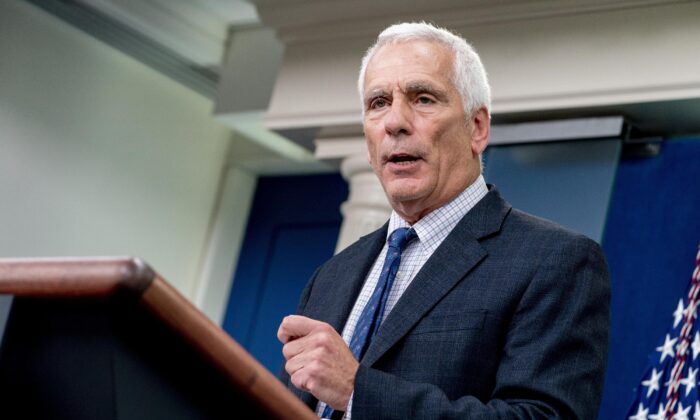As the national debt and deficit loom large, Biden economists and policymakers spoke at an event assessing recommendations in a recent report.
WASHINGTON—A “Grand Bargain” from major center-left and center-right think tanks that proposed common-ground solutions to the country’s pressing issues was met with approval but some criticism from Biden economic advisers who reviewed it at an event on Dec. 3.
“I very much agree with the tax system critiques,” Bernstein said onstage at the Brookings Institution on Dec. 3.
The report “Toward a Potential Grand Bargain for the Nation” calls for taxation to be tilted toward a more progressive direction, advocating an inheritance tax system and, as one of two options, a value-added tax for most households in place of income taxes.
Bernstein was concerned about the absence of discussion of money for the Internal Revenue Service in the report.
“Funding the IRS should be an absolute, required part of any Grand Bargain,” the White House official said.
Bernstein also departed from the report on industrial policy, which was popular with elements of the Biden and Trump administrations. The Grand Bargain characterized industrial policy as interventionist, stating that it often amounted to circumstances in which “the government picks winners and losers.”
“The train has left the station on that, given the extent of money in politics and the depth of lobbying. The federal government will not stop picking winners and losers,” Bernstein said.
He also said the lack of discussion on housing in the report was “such an acute shortfall.”
Additionally, the absence of anyone closely tied to the incoming Trump administration underscores this challenge.
“This report touts itself as a bipartisan effort. I’ve read through the names in the report. I don’t see anyone in there who I could see being even potentially hired by the Trump administration,” said Jeff Stein, The Washington Post reporter moderating the talk.
The White House’s Bernstein was joined by Ben Harris, an economist who worked for Joe Biden during his vice presidency and presidency, when Harris was assistant secretary of the Treasury for economic policy. Harris echoed Bernstein on what he described as an urgent need for more IRS funding.
Some report contributors who spoke, including William Hoagland of the Bipartisan Policy Center, stressed that the Grand Bargain wasn’t designed with political feasibility front of mind, at least in the short term.
“Politically, we’re in a bad place,” said Brookings’s Isabel Sawhill, who noted that interest payments on the debt now exceed defense spending—an inauspicious first in the nation’s history.
The Trump administration will come into power with Republicans controlling the House and Senate. While the GOP has historically called into question the financial viability of Social Security, which consumes one-fifth of the federal budget, Trump campaigned on ending taxes on Social Security benefits.
“Neither candidate has presented plans to fix Social Security’s finances,” the committee wrote.










